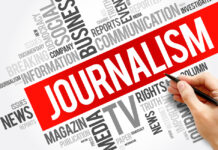
In the digital age, social media has become an integral part of journalism, offering a platform for news dissemination, audience engagement, and source discovery. However, with the power and influence of social media comes a range of ethical considerations. This article aims to educate journalists, media personnel, and students of journalism on the ethical use of social media. By exploring the principles of credibility, privacy, and professional integrity, readers will gain valuable insights into responsible social media practices within the realm of journalism.
Understanding Ethical Considerations: We begin by providing a comprehensive overview of the ethical considerations associated with social media usage in journalism. Exploring the challenges of maintaining credibility, respecting privacy, and engaging with audiences, readers will understand the importance of ethical decision-making when using social media as a journalist.
Guidelines for Responsible Social Media Use: To ensure responsible social media use, we offer practical guidelines and best practices. From verifying information before sharing to avoiding conflicts of interest and disclosing affiliations, readers will learn essential strategies for upholding ethical standards while utilizing social media platforms. Case studies and examples will be incorporated to illustrate the impact of ethical and unethical social media practices.
Privacy and Confidentiality: We delve into the delicate balance between the public nature of social media and the privacy rights of individuals. By discussing the importance of respecting privacy, obtaining consent for publication, and understanding the limitations of privacy settings, readers will gain insights into preserving the rights and dignity of individuals in the digital sphere.
Maintaining Professional Integrity: Professional integrity is a cornerstone of ethical journalism. We explore the potential pitfalls of social media usage, such as conflicts of interest and biased reporting. By emphasizing the need for transparency, independence, and impartiality, readers will be equipped to navigate the ethical challenges that may arise while using social media as a journalist.
Media ethical challenges are prevalent in today’s digital age, where the rapid dissemination of information and the interconnectedness of global audiences pose unique dilemmas for journalists, media organizations, and content creators. Some of the key ethical challenges faced by the media include:
1. Misinformation and Fake News:
The spread of misinformation, false stories, and fake news can cause significant harm to individuals, communities, and societies. Media outlets are confronted with the responsibility of verifying information before reporting and combating the dissemination of false or misleading content.
2. Bias and Sensationalism:
Media organizations may face ethical challenges related to biased reporting or sensationalizing stories to attract more audiences. Balancing the need for engaging content with accurate and impartial reporting can be a delicate task.
3. Privacy and Intrusion:
Journalists often encounter ethical dilemmas when reporting on private individuals’ lives or sensitive issues. Striking a balance between the public’s right to know and respecting an individual’s right to privacy can be challenging.
4. Conflict of Interest:
Media professionals may face conflicts of interest that could compromise their objectivity and credibility. Accepting gifts, favors, or financial incentives from sources or subjects of a story can raise questions about journalistic integrity.
5. Plagiarism and Attribution:
Properly crediting sources and avoiding plagiarism is a fundamental ethical principle in journalism. Failure to attribute information correctly can undermine the trustworthiness of media organizations.
6. Graphic and Disturbing Content:
Deciding whether to publish graphic or disturbing images and videos is a constant ethical challenge. Balancing the public’s right to know with the potential harm caused by explicit content requires careful consideration.
7. Invasive Reporting:
Intrusive or aggressive reporting practices, such as ambush interviews or doorstepping, raise ethical concerns about the well-being and rights of the subjects being pursued.
8. Confidential Sources:
Journalists may encounter dilemmas when dealing with confidential sources who provide vital information on the condition of anonymity. Balancing source protection with the need to verify and corroborate information is critical.
9. Social Media and User-Generated Content:
The rise of social media has made it easier for citizen journalists and social media users to share news and information. However, verifying user-generated content and distinguishing between reliable and unreliable sources present ethical challenges.
10. Clickbait and Viral Content:
Media outlets may be tempted to use clickbait headlines or produce viral content without substantial journalistic value. This can undermine trust in media organizations and reduce the focus on important news stories.
11. Commercial Pressures:
Media organizations often face commercial pressures to attract advertising revenue and maintain profitability. Ethical challenges arise when the pursuit of financial gains compromises the quality and integrity of reporting.
12. Cultural Sensitivity:
Reporting on topics that involve different cultures, religions, or ethnic groups requires careful consideration to avoid stereotypes, misrepresentations, or unintended offense.
Media professionals and organizations must navigate these ethical challenges with integrity, transparency, and a commitment to journalistic principles. Adhering to professional codes of ethics, implementing robust fact-checking processes, and engaging in transparent corrections when errors occur are essential steps in upholding media credibility and serving the public interest.
Quote: “Social media is a powerful tool for journalists, but it comes with the responsibility to use it ethically and responsibly.” – Unknown
Questions and Answers:
1. What are the main ethical considerations when using social media as a journalist?
Answer: The main ethical considerations include credibility, privacy, and engaging with audiences in a responsible and respectful manner.
2. How can journalists maintain credibility on social media platforms?
Answer: Journalists can maintain credibility by verifying information before sharing, citing reliable sources, and avoiding the spread of misinformation.
3. What are some guidelines for responsible social media use in journalism?
Answer: Guidelines include avoiding conflicts of interest, disclosing affiliations, respecting privacy, and maintaining professional integrity.
4. How can journalists engage with audiences on social media while upholding ethical standards?
Answer: Journalists can engage with audiences by promoting respectful and constructive dialogue, addressing feedback and concerns, and maintaining transparency in their interactions.
5. What are the potential risks of using social media as a journalist?
Answer: Risks include compromising privacy, unintentionally spreading misinformation, and being influenced by personal biases or conflicts of interest.
Role Model for Inspiration:
Lester Holt, an esteemed journalist and news anchor known for his integrity and unbiased reporting, serves as an inspiring role model in ethical journalism. His commitment to responsible reporting and dedication to journalistic ethics make him an exemplary figure for aspiring journalists.
Recommended Book: “The Ethical Journalist: Making Responsible Decisions in the Pursuit of News” by Gene Foreman. This book provides valuable insights into ethical decision-making in journalism, offering guidance on navigating ethical dilemmas in the digital age.
History of Ethical Use of Social Media:
The history of the ethical use of social media is relatively short, as social media platforms only gained widespread popularity in the 21st century. As these platforms rapidly evolved, ethical considerations regarding privacy, user data, content moderation, and the impact of social media on society have become increasingly important. Here are some key milestones in the history of the ethical use of social media:
1. Early Social Media Platforms:
The emergence of platforms like Friendster, MySpace, and LinkedIn in the early 2000s laid the foundation for social networking. While these platforms facilitated online connections, ethical concerns were not as prominent at this stage.
2. Privacy Concerns:
As social media usage grew, concerns about user privacy intensified. Facebook, founded in 2004, faced early criticism for its privacy settings and data handling practices. Over the years, privacy-related issues have become a significant ethical challenge for social media companies.
3. User Data and Cambridge Analytica Scandal (2018):
The Cambridge Analytica scandal exposed how personal data from millions of Facebook users was harvested without their consent and used for targeted political advertising. This incident sparked public outrage and led to increased scrutiny of social media companies’ data practices.
4. Spread of Misinformation and Fake News:
The widespread dissemination of misinformation and fake news on social media platforms became a prominent ethical concern. Platforms like Twitter and Facebook faced criticism for their roles in spreading false or misleading information during significant events and elections.
5. Content Moderation and Free Speech:
Social media platforms grappled with content moderation issues, balancing the principles of free speech and preventing the spread of harmful or inappropriate content. Decisions on what content to remove or restrict have raised ethical questions about censorship and platform responsibility.
6. Mental Health and Well-being:
As social media became ingrained in daily life, concerns arose about its impact on mental health, especially among younger users. Issues like cyberbullying, social comparison, and the addictive nature of social media usage have prompted discussions on ethical responsibilities.
7. Data Privacy Regulations:
In response to growing privacy concerns, the European Union implemented the General Data Protection Regulation (GDPR) in 2018. GDPR aimed to protect individuals’ data rights and increased transparency requirements for social media companies operating in the EU.
8. Algorithmic Bias and Echo Chambers:
The use of algorithms to personalize content on social media platforms raised ethical questions about algorithmic bias and the potential for creating echo chambers that reinforce individuals’ existing beliefs and perspectives.
9. Impact on Elections and Democracy:
Social media’s role in shaping public opinion and influencing elections became a subject of ethical debate. The spread of disinformation, fake accounts, and foreign interference raised concerns about preserving the integrity of democratic processes.
10. Efforts Towards Ethical Use:
In response to the ethical challenges, social media companies have made efforts to address issues like misinformation, improve privacy controls, and promote responsible content moderation. However, these efforts continue to be scrutinized for their effectiveness and transparency.
11. Global Concerns and Regulation:
Ethical use of social media has become a global concern, leading to discussions about the need for robust regulations and guidelines to hold social media companies accountable for their practices.
The history of the ethical use of social media is an ongoing story, and the challenges continue to evolve as technology advances and societies adapt to the impact of social media on various aspects of life. Ethical considerations will remain essential in shaping the responsible use of social media in the future.
Overall the ethical use of social media is a crucial aspect of journalism in the digital era. This article has provided a comprehensive overview of the ethical considerations when using social media as a journalist, including credibility, privacy, and maintaining professional integrity. By offering practical guidelines, exploring case studies, and encouraging critical thinking, we aim to educate journalists, media personnel, and students of journalism on the responsible use of social media. By upholding ethical standards, journalists can leverage the power of social media to engage audiences, disseminate news, and promote responsible journalism practices.













